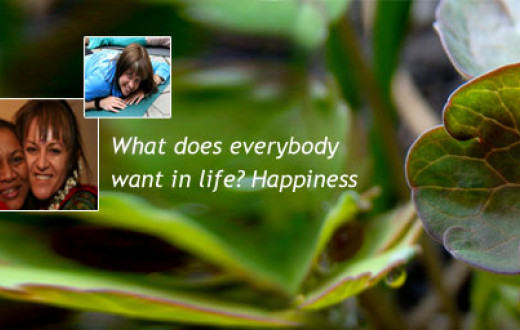
(Below is a continuation of the post The 3 Types Of Dhritis)
Once when I was on tour in California, I saw that there was an advertisement for the cemetery there on the road.
Do you know what the advertisement said? It said, 'Beautiful and scenic burial ground with panoramic views. Book your place now!' What would a corpse have to do with seeing panoramic views after death?
In foreign countries, there is a great amount of marketing done even for cremation and burials. It is so surprising. People there actually go ahead and make bookings for themselves in advance, so that they do not miss out in the end.
They even give instructions as to what clothes should they be buried in, what colour they should be and so on. They write all this in their will. This is the most unfortunate extent of attachment one can have to the physical body. Just let go!
Someone or the other will surely cremate you after you die. Why think so much about this? It is sheer madness, I tell you.
That Dhriti that sustains such negativity in a person is Tamasik Dhriti.
We should all reflect for ourselves as to what kind of Dhriti do we have? Is it Sattvik, Rajasi or Tamasi?
If you really have to become so madly attached to something, get attached to the Divine who has created everything, rather than getting attached to the things He has created.
Such attachment only creates fear. This fear in turn brings misery and sorrow, which in turn bring dejection and disappointment. Then one goes on regretting endlessly about the past.
They think, 'I should not have left that job', or, 'I should have chosen that other girl for marriage when I had the chance', and so on.
An engineer on the brink of retirement thinks, 'I should have chosen medicine for a career and gone to the US to practice. I made such a foolish mistake'.
Such people go on lamenting even as their life is coming to an end. They go on thinking about the events of the past and regretting them.
Some people go so deep in their sorrow and feelings of disappointment that they find something to grieve about in everything that happens around them.
For example, some people who are travelling from Mumbai to Bangalore. Once they reach Bangalore, they continue to complain, 'Oh, I should have booked the AC compartment. I should have booked in advance', and so on.
You have finished your journey. Whatever difficulties you had to endure in travel are already over, yet you regret and complain.
Sometimes, after having reached home, people will think, 'I wish I had taken the other road from my office, I could have reached half an hour earlier'.
What great thing would you have accomplished in half an hour? Has the world collapsed around you because of losing out on half an hour?
Regretting becomes a habit with such people. Such people will find something or the other to regret about, no matter whom they talk to. This habit of constantly regretting brings dullness and inertia.
A person who is happy and full of enthusiasm will never regret. His consciousness has awakened and is active. One whose consciousness is not awakened will go on regretting the past. Such a Dhriti that does not support and sustain the Prana is Tamasi Dhriti.
Another sign of Tamasi Dhriti is arrogance. One who gets stuck with such a false sense of pride is unable to free himself from it, and this is what Tamasi Dhriti is.
Another sign of Tamasi Dhriti is arrogance. Often people who have a habit of regretting walk with stiffness and pride.
You must have seen this on TV. Many of the candidates who lost the recent elections have still not lost their stiffness and false pride. They give all sorts of reasons for their defeat and blame someone else.
In Kannada there is a wise saying for this. It is like a wrestler who has fallen to the ground in defeat, yet he continue to say that there is still no sand in my moustache (meaning to not accept defeat).
I tell you, there is so much dirt in your head, how can there not be any on your moustache? This is arrogance, or Durahamkaar (false pride or egotistical behaviour).
One who gets stuck with such a false sense of pride is unable to free himself from it, and this is what Tamasi Dhriti is.
There is a story about Mulla Nasruddin.
Mullah lived in a town where there was severe drought and for nearly six years there was not much rain. So Mullah Nasruddin kept complaining about this that he got used to complaining. He used to complain and complain.
Finally, in that particular year it rained well and the crop harvest was very good, but even then Mullah had a long face and he still kept complaining.
So his friends asked him, ‘Mullah, why are you sad? This year you have nothing to complain about, because you have abundance, the harvest was very good’.
But Mullah was still complaining, he said, ‘Now there is too much work for me. I am not used to working so hard for the last six years. This year I have to work and I am not able to work.’
This is like, being upset when you were not married because you could not find a suitable partner, and then even after getting married you are still upset (Laughter). This is Tamasik Dhriti.
Such people are always regretful about something or the other. They will say, 'Oh, this should not have happened. I should have had so-and-so comfort'.
This is Vishaada, i.e., always regretting the past.
Some people go so deep in their sorrow, and feelings of disappointment that they find something to grieve about in everything that happens around them.
When one is under the influence of Tamasik Dhriti, he is unable to get out of this negativity in the mind. Some people try very hard to get out of the negativity but they are unable to do so. So strong is the hold of the Tamasik Dhriti that they will just have to say or do something negative. They will frown at people, or put up a long face.
That Dhriti that sustains such negativity in a person is Tamasik Dhriti. We should all reflect for ourselves as to what kind of Dhriti do we have? Is it Sattvik, Rajasi or Tamasi?
There is a similar kind of classification in the Bhagavad Gita about the type of doer (kartaa) of the action (karma).
The first kind is the Sattvik Kartaa. Whether his work gets done or not, he remains happy and enthusiastic regardless of it.
The second kind is the Rajasik Kartaa. If his work gets done, he will get very excited and happy; but if it does not, then he will become extremely miserable.
The Tamasik Kartaa is one who has no knowledge of what he should or should not do. He constantly regrets and is not able to take a firm decision as to when he will do something or not. He keeps on procrastinating action and makes no effort by himself to do anything. Such a person will say, 'Oh, I will do it later, God willing!' And he leaves it all to the will of the Divine for something to happen.
In the same way, there are three kinds of Buddhi (intelligence), Guna (one’s quality or nature) and Dhriti.
(Note: The discourse was given in Hindi. Above is a translation of the original talk.)
(Click Here to continue reading)

























